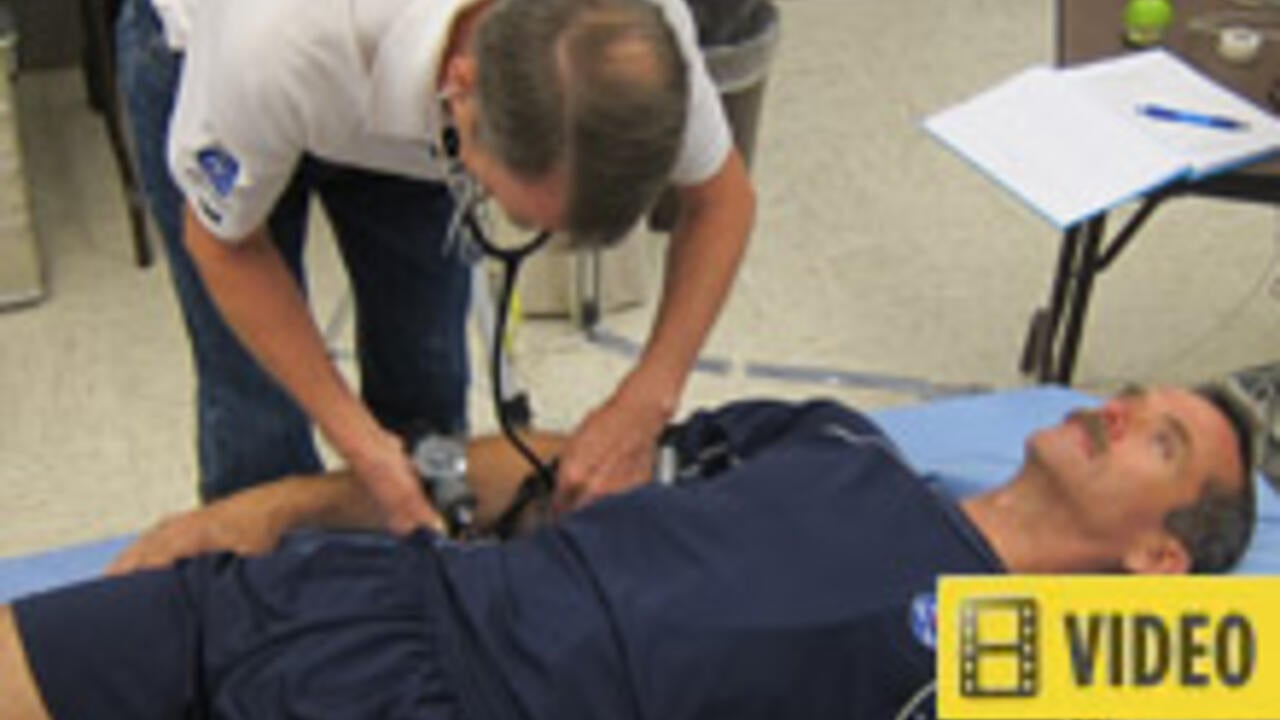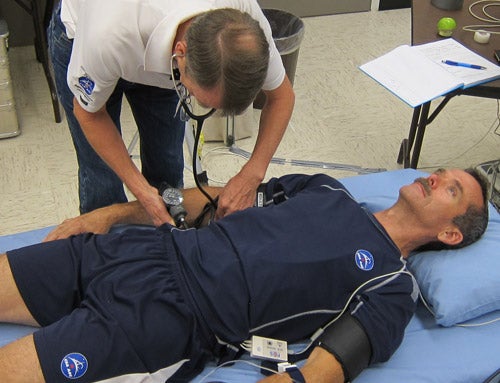
Waterloo science aboard the International Space Station
Researcher in Applied Health Sciences is leading a new experiment aboard the International Space Station

Researcher in Applied Health Sciences is leading a new experiment aboard the International Space Station
By Christine Bezruki Applied Health SciencesDuring a six-month space mission, an astronaut’s cardiovascular system can age by up to 10 or 20 years. Professor Richard Hughson is working with astronauts aboard the International Space Station to better understand why.

University of Waterloo professor Richard Hughson conducting research with Chris Hadfield. Photo credit: Derrick Piontek
In a follow up study to his work with retired Canadian astronaut Chris Hadfield, Hughson and head technician Danielle Greaves will use remote guidance ultrasound to have the astronauts track changes in their heart and blood vessels while in space, then monitor their recovery upon returning home. The findings will help identify important indicators for chronic disease and assist with the development of early interventions for people on Earth.
European Space Agency astronaut Tim Peake describes the next stage of this research in a new video from the International Space Station, recently released by the Canadian Space Agency.

Read more
How machine learning empowers collaboration between computer science, math and medical research

Read more
Dr. Heather Keller discusses the need to transform mealtimes in Canada’s long-term care homes from a service to a meaningful form of care

Read more
“I’m just like you.”
The University of Waterloo acknowledges that much of our work takes place on the traditional territory of the Neutral, Anishinaabeg, and Haudenosaunee peoples. Our main campus is situated on the Haldimand Tract, the land granted to the Six Nations that includes six miles on each side of the Grand River. Our active work toward reconciliation takes place across our campuses through research, learning, teaching, and community building, and is co-ordinated within the Office of Indigenous Relations.